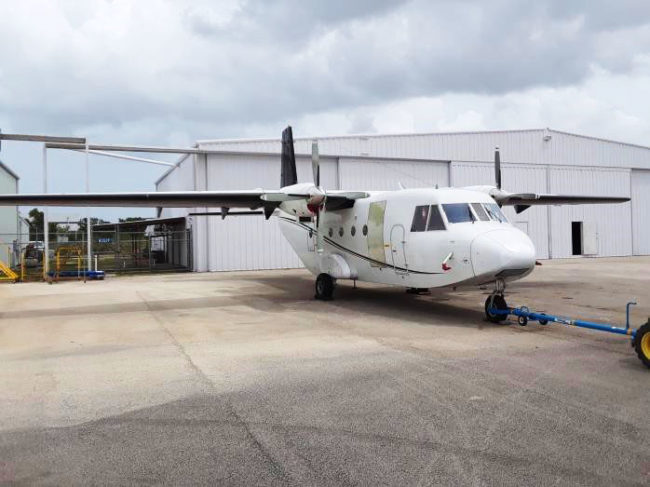YEAR: 1986
MAKE: Yakovlev
MODEL: Yak 52
REG NUMBER: G-YAKC
AIRCRAFT TYPE: Single
AIRFRAME HOURS: 1170 TTSN 81 TTSO (+/- 5hrs)
ENGINE MAKE: Ivchenco Vedeneyev M-14PF
ENGINE HOURS: 154.9 (+/- 5hrs)
ENGINE OVERHAULED: 17/05/2010
PROP MAKE: MTV 9 – 250
PROP HOURS: 10 TTSN 5 TTSO (+/- 5hrs)
PROP OVERHAULED: 19/02/2023
PRICE: £79,900.00 GBP
LAST CAA PERMIT: New on Sale
EMPTY WEIGHT: 996 kg (2196 lbs)
MTOW: 1315 kg (2900 lbs)
Finance Example
Explore Possible Finance
Wilco Aviation is proud to present several exclusive listings for Yakovlev 50 and 52 aircraft in the UK. These aircraft are currently owned, operated, and displayed by the world-renowned Yakovlev display team, The Yakovlevs.
The Yakovlev Yak-52 (Russian: Яковлев Як-52) is a Soviet-era primary trainer aircraft that first took to the skies in 1976. From 1977 to 1998, it was produced in Romania by Aerostar, under the designation Iak-52, after securing manufacturing rights through an agreement within the former COMECON socialist trade organization. The Yak-52 was originally designed as an aerobatic trainer for students in the Soviet DOSAAF training organization, which prepared both civilian sport pilots and military aviators. Today, the Yak-52 continues to be used in the Fédération Aéronautique Internationale (FAI) World Aerobatic Yak 52 Competition, a popular one-design category in the World Aerobatic Championship for powered aircraft.
This particular Yak-52 is powered by a supercharged Vedeneyev M14PF engine, producing 400 hp and driving the MTV 9 -250 propeller through a reduction gearbox. The landing gear, brakes, and engine starter are operated by compressed air, replenished by an engine-driven compressor.
Aircraft G-YAKC has undergone extensive modifications to enhance its performance and usability. These upgrades include replacing the traditional ignition system with an automotive modification for reliable starts, removing heavy wiring and inverter systems in favor of modern lightweight generator systems, and modifying the lower cylinder oil drain, among others.
The Yakovlevs’ paint scheme is an adaptation of the livery used by aircraft in the 1941 Battle of Stalingrad to identify allies and has been used by The Yakovlevs in an honour to the men and women who were involved.
The Yak-52, like many Soviet military aircraft, was designed for operation in rugged environments with minimal maintenance requirements. A distinctive feature, uncommon in Western aircraft, is its extensive pneumatic system. This system controls engine starting, landing gear, flaps, and wheel brakes, all of which are pneumatically actuated. The aircraft is equipped with spherical air storage bottles, located behind the rear cockpit and replenished by an engine-driven compressor, with their pressure levels displayed on the instrument panels. The operating pressure ranges from 10 to 50 bars (145 to 725 psi), with an emergency circuit available for lowering the landing gear in case the normal supply is depleted or the compressor fails. Both the main and reserve air bottles can also be recharged from a ground-based compressed air source, typically using a scuba-type air bottle.
Pilots accustomed to hydraulic systems may need time to adjust to the Yak-52’s ground steering and braking setup, as it relies on differential braking controlled by the rudder pedals and a hand-operated lever on the control stick.
The aircraft features retractable tricycle landing gear, which remains partially exposed when retracted. This design provides both useful drag during descent and some protection in the event of a forced “wheels-up†landing.
All applicable Airworthiness Directives (ADs) and Service Bulletins (SBs) have been addressed. Full logs and records are available for inspection.
Worldwide shipping and packaging can be arranged by experienced Yakovlev team aircraft engineers at an additional predetermined cost.
Total fuel 120 litres
140knt cruise
Interior: Standard
Exterior: Silver & Red
Trig TY91 Transceivers (8.33 kHz spaced)
Garmin GTX 328 Mode S
Garmin GMA 240 Audio panel
AvMap EVP 5
McMurdo 406mHz Integra ELT
Air Speed Indicator (ASI)
Altimeter
Cylinder Heat Temperature gauge (CHT)
Carb Temperature gauge
Oil Temperature gauge
Oil Pressure gauge
Manifold Pressure gauge
Fuel Pressure gauge
G Meter
RPM gauge
Clock
Compass
Active noise reduction Lomo connector
Aux 24v Socket front & rear
Smoke system
Hooker 7-point harness
Hot weather canopy cover
Cold weather canopy cover
Interior – 8/10
Exterior – 9/10











